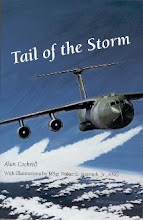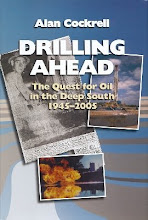Just
a few minutes short of six hours, it was—the Boston-San Francisco
transcon. We joked. “Who's takin' the first break?” Chris shook
his head. “Man, this is damn near a Boston-London run, without a
relief pilot.” He yawned. I looked out across the Great Plains,
then at the clock. I yawned. We were about half way. Then came the
'ding' that that turns you on your head.
“Captain,
one of the flight attendants in the back wants the paramedics to meet
her at San Francisco.” My antennas went up. I circled my wagons.
This spelled trouble.
She
went on to explain. It seems the subject flight attendant had
recently been tested for possible heart ailments. Now she was
experiencing periodic stabbing back pain. She feared a looming heart
attack, but didn't want too much attention. She could sweat it out to
destination, she said.
My
first thought was, where are we setting down if this turns worse?
Denver lie 180 miles ahead and south of our course. That was the
obvious place. I asked Chris to set up a conference call between our
dispatcher and RadioDoc (made-up name). As he went about that, I
thought about the earlier times when our company had its own medical
staff. Whenever we called for advice we recognized the doc's voice
(there were several of them). Those guys were well versed in aviation
medicine—ex-miltary flight surgeons—and often gave us our
physicals. Now, no more. The medical department was closed years ago
and the staff fired.
Chris
sent the ACARS message to Dispatch: “CALL ME.” Within seconds the
message popped up. Frequency 129.4. Chris tuned in the frequency and
tried to establish contact. But the frequency was full of static and
a squeal so loud he could hardly understand the dispatcher. He
swapped radios; tried dispatch on VHF-1. No joy. He asked for a
different frequency but the dispatcher's reply was garbled. Chris
tried to tell him we needed a RadioDoc conference call. More static.
More squeals. More garbled voices.
Then
the ACARS printer spewed out a form. It wanted a bunch of information
on the “patient.” I called back to the Lead and asked her for the
info. With Chris shouting into VHF-2 trying to communicate, the lead
flight attendant on the interphone spewing info to me, and me trying
to monitor Denver Center on VHF-1, the hand basket slid closer to
hell. My blood pressure started to rise, but I reminded myself that
we were not in the process of crashing. Life will go on—for now.
Finally
I got the info and handed it to Chris. He tried to read it to the
person on the other end—we didn't know who that was. RadioDoc is a
clinic somewhere that supposedly has contracted with our company to
provide in-flight medical advice. The woman we heard through the
static and squealing was talking too damn fast. She didn't understand
radio-speak and had no idea we couldn't read her. I wondered even if
she was a physician. Might she be a physician's assistant? Nurse?
Candy-stripper sitting at home with her babies?
Chris,
patience stretching thin, literally shouted into his mic: “GIVE US
A DIFFERENT FREQUENCY!”
Twenty
minutes into this goat rope, I noticed Denver passing abeam us. If we
couldn't get the medical opinion we needed to assess this woman's
condition, would it not be prudent to play it safe and divert to
Denver? What a hell of a costly stop that would be. But suppose we
passed up Denver and this woman was indeed in more serious trouble
than she herself realized? In times like this I tend to notice the
four stripes on my shoulder when I look aside, and they feel heavy
A
new ACARS message flashed: “LET'S TRY 131.80.” Chris swiftly
switched to the new frequency. It was just as bad as the first one.
This was now more serious a problem than our medical situation.
Without radio contact with Dispatch we are totally independent and
cannot get the info we may need in any emergency situation. Your
dispatcher is your link to the world, to safety. He gives you
everything from weather and performance data to field conditions and
game scores. You feel naked without Dispatch contact.
As
Chris tried in vain to make sense of the voices on the other end of
VHF-2, I began planning our divert to Denver. I decided I will not
risk the woman's life and my career by bypassig a safe harbor in the
throes of doubt. I was about to press the mic and tell Denver Center
to clear us for diversion to Denver when Chris seemed to start making
progress. He had to tell the woman to slow down her talking. After
asking more questions she advised us to put the flight attendant on
oxygen and continue to San Francisco while keeping an eye on her for
changes or worsening.
What
a relief. Chris signed off with Dispatch and slumped in his seat. I
stared ahead and thought about how close we were forced to come to
wasting tens of thousands of dollars and causing 185 people needless
hours of delay.
The
paramedics met us and examined the flight attendant. They found her
fine. She merrily walked with us to the layover hotel.
But
that wasn't the end of they day's ills. In only one hour after the
RadioDoc fiasco—before we landed—the weight of the four stripes
would be felt again when another kind of hell broke loose and I would
be exercising “Captain's Emergency Authority.” That means,
literally, breaking the rules to stay alive.
Stay tuned.
Stay tuned.




